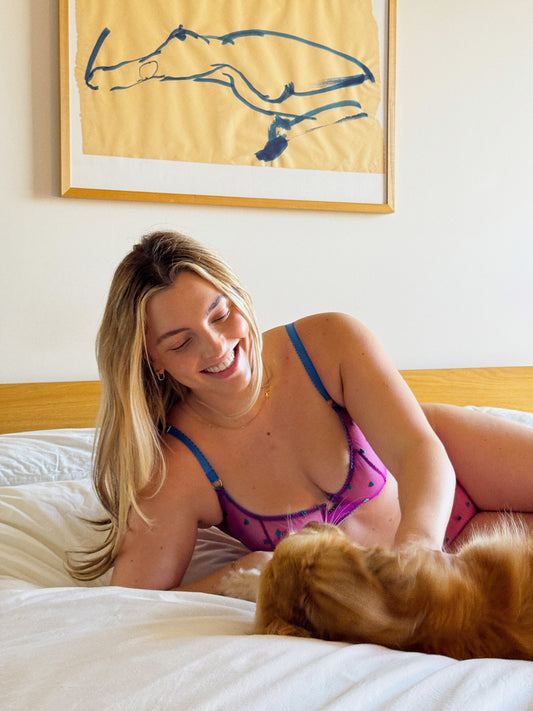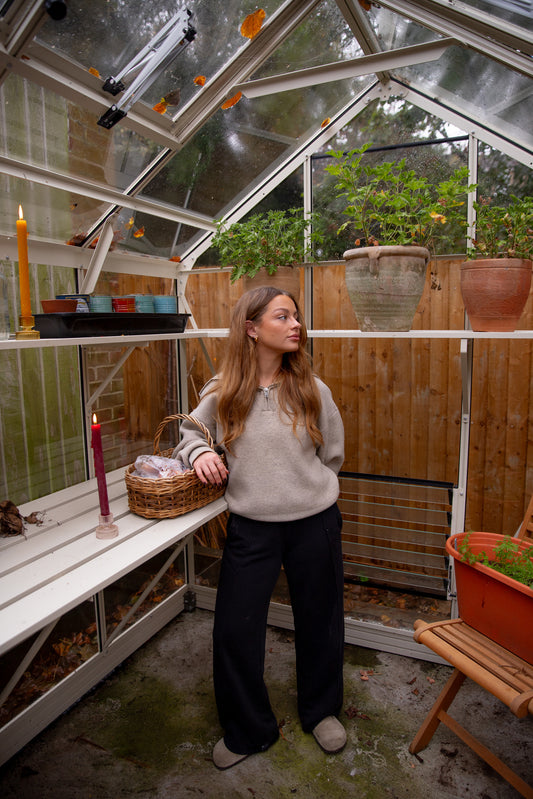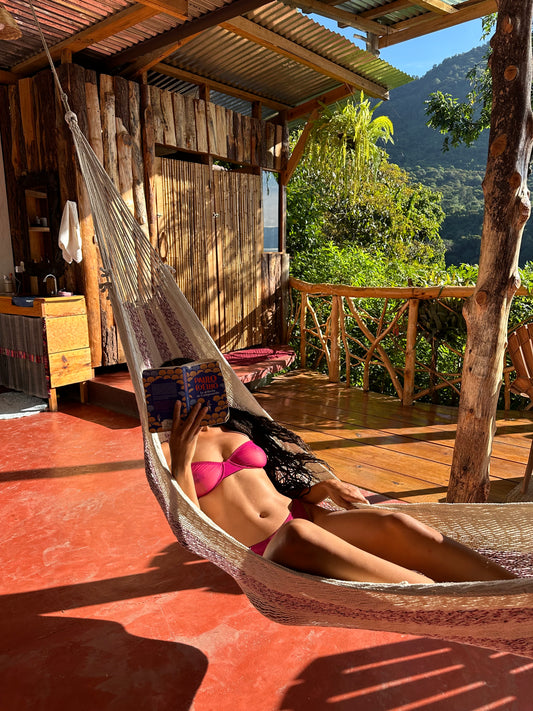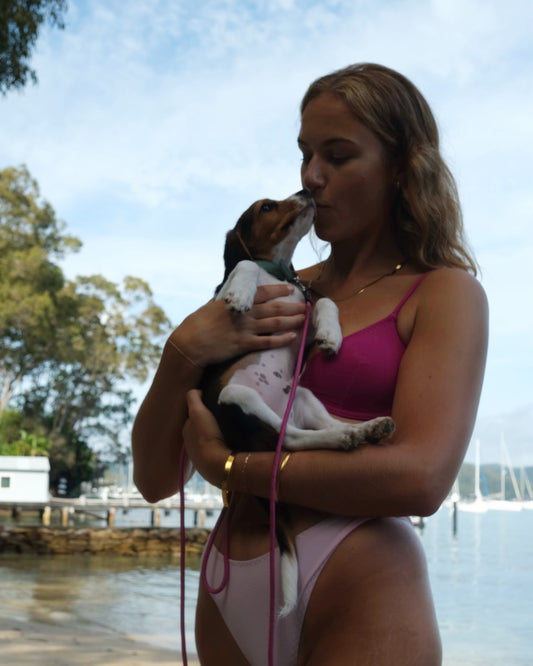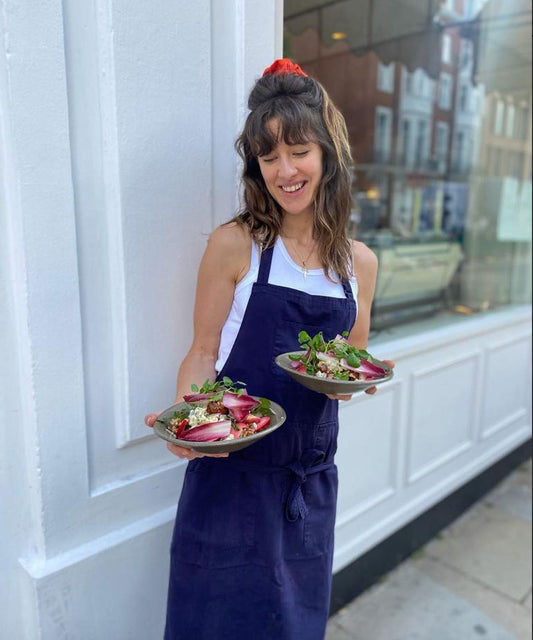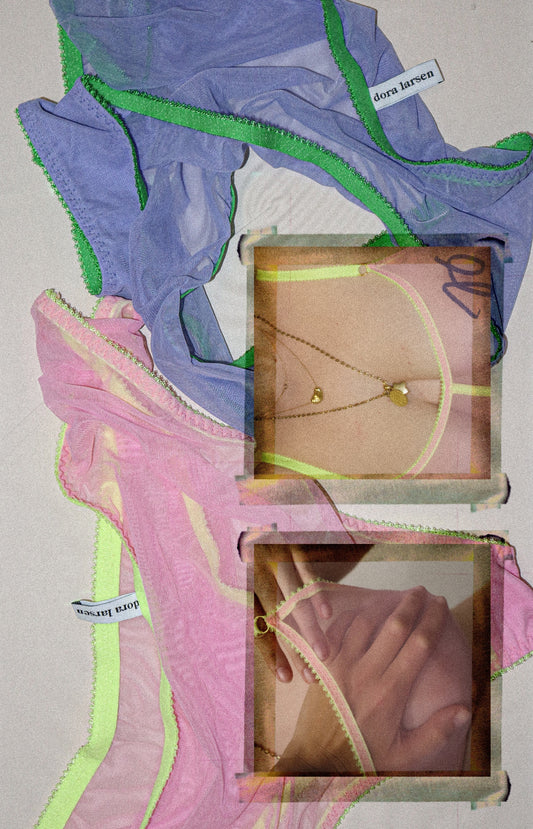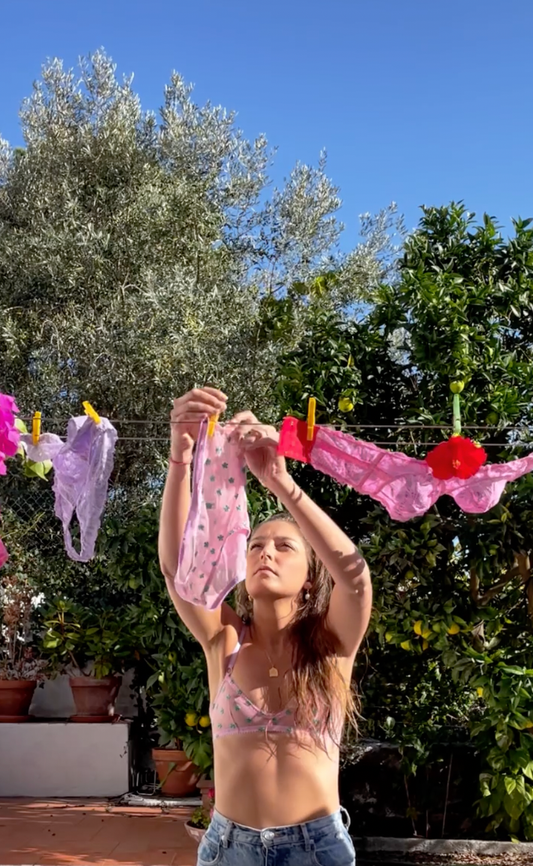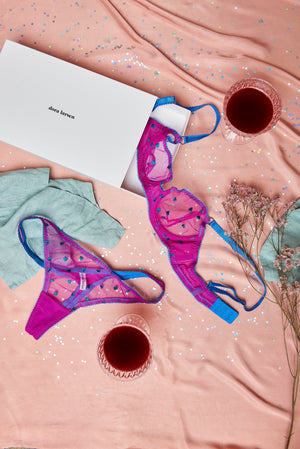Today is World Oceans Day. A day to unite the planet on the sustainable management of the world’s oceans. We’re passionate about protecting the Earth’s resources, so as members of 1% for the Planet we select organisations to partner with to give back. We’ll be supporting by donating 100% of profits today to eXXpedition. We caught up with their founder, Emily Penn, on the importance of our oceans, creating a community, and the small steps we can take to reduce our impact on ocean pollution in our daily lives.
Tell us about you and how you first got into raising awareness on the subject of plastic pollution?
“My journey to tackle plastic pollution began over 10 years ago, when I hitch-hiked around the world on a bio-fuelled boat to get to a new job in Australia. It was a job I didn't end up taking. Instead, shocked by finding plastic in some of the most remote places on our planet, I chose to live on a group of Pacific islands for six months to organise a community clean-up. I then travelled to California to learn more from some of the experts in the field of ocean plastic. Since then, my career has been dedicated to finding solutions to tackle ocean plastic pollution, and has taken me all over the world facilitating science at sea, outreach and the implementation of solutions on land.”
How did you start your not for profit organisation, eXXpedition,;'p and what was your mission when you began?
“In 2014, I co-founded eXXpedition with Lucy Gilliam – organising all-women sailing voyages with a focus on plastic and toxic pollution in the ocean. We set out with this tag line of “making the unseen seen”, which we originally thought was about microplastics, these unseen bits of plastic in the ocean and the toxic pollutants as well. But then we started to realise that there were many more “unseens” that we were highlighting, and a lot of that was women in science, women in sport and exploration and sailing. And our project touches on so many different areas that you wouldn’t typically expect to find women at the forefront.
eXXpedition has three main goals. The first is top take all-women crews on a voyage to understand more about the plastics issues and carry out and contribute to important scientific research projects. The samples and data we collect feed into global studies on the nature and impact of microplastics, microfibres and toxic chemicals in the ocean. The second is to shift perceptions on the real problem of plastic pollution using our platform to inform and educate so that people can better understand the challenge of microplastics and that clean up alone is not a solution, that the actions and solutions we need start on land. The third is to provide an experience, platform and learning opportunity for our amazing multidisciplinary crew. While on board, each member of our crew shares their own experiences, supports novel and innovative scientific research, participates in workshops to find where they fit in creating solutions and explores collaboration opportunities with other members of the team.
After completing their voyage, each guest crew joins our already thriving network of eXXpedition ambassadors, taking the message of ocean plastic and achievable actions back to their own communities.”
Was it important for you that it be a collective of women spearheading the community you created?
“eXXpedition began as an all-women venture when I was learning about the potential toxic implications of chemicals used in the production of plastic, and other pollutants in our environment. These chemicals are endocrine disruptors which can disrupt hormones during pregnancy and can be passed to our children in the womb or through breastfeeding. But since the first voyage, I have also been blown away by how key the 'all women' aspect of these voyages has become. There is something unique about taking a passionate group of women on a voyage. Boundaries are let down, as we overcome challenges together. Bonds form fast and last for life.”

What has been your biggest challenge and most proud moment since your research began?
“The combination of remote ocean sailing, scientific research at sea and bringing together crews of international multidisciplinary women with mixed levels of sailing experiences makes offshore sailing expeditions, extremely challenging feats to pull off! It is a delicate formula to get right. Happily, we seem to have found the right balance over the years! For us, no doubt, the greatest challenge we've faced is what we're facing right now with the global pandemic of covid-19. Like everyone around the world we're working hard to adapt to these changing times.”
There is so much talk surrounding single use plastics, microplastics and the issues they bring; it can often feel overwhelming for anyone trying to make a difference. What can we do in our daily lives to help the cause?
“The more time I spend at sea, the more I realise that the solutions to ocean plastic are on land. Every bottle and toothbrush polluting the ocean once belonged to someone. It's billions of microactions that have led us to this situation and it's billions of microactions that will get us out.
Firstly, avoid as much single-use plastic as possible, but also take a look at your skill set and work out how you can apply it to the problem. We all have a unique set of skills (what I like to call 'superpowers') that can be put to use, you just need to explore where you can make the biggest impact. This might be as a teacher in schools or a sailor at sea, but it also might be as an accountant for a non-profit or as an event’s organiser, setting up a community clean-up.“

What are your plans for the future with eXXpedition and SHiFT?
“Only time will tell the impact the pandemic will ultimately have on the state of our ocean but there is no time to wait. At eXXpedition our work at sea came to a halt because of COVID-19 when we left the boat in Tahiti at the end of Leg 8 on our Round the World mission, but our vision remains unchanged and our work hasn’t stopped. We’ve made shifts to be able to continue making change, albeit differently - at home on our doorsteps around the world, where the problem begins. And the opportunities are many.
Our mantra that there’s no silver bullet to tackle ocean plastics couldn’t be truer. The pandemic has resulted in a huge increase in the generation of single use plastic items and this is combined with a slowing down of positive action like national plastic bans. While the list of sources of plastic pollution seems endless, the list of solutions is large and growing too. Just as before the pandemic, the focus must be on both the importance of collective action and the diversity of the solutions needed. We need to tackle the problem from every angle, but we need to find new ways to do that using technology to give us more transparency and connectivity to both nature and to one another and to inspire solutions for the ocean. The virus doesn’t know political borders, in the same way the ocean, our climate and pollution doesn’t either. We share one planet and global problems transcend all boundaries which means the solutions need to as well.
For now, our challenge is not how to navigate the remotest parts of our ocean to achieve the change that’s needed to protect our ocean, but how we scale our impact by harnessing technology and all our incredible assets to push forward our urgent mission of researching the causes of and solutions to microplastic pollution in new ways.”

Find our more about eXXpedition here.
Watch Emily’s Ted talk here.


